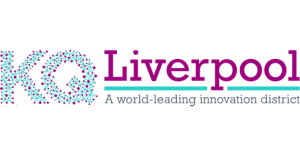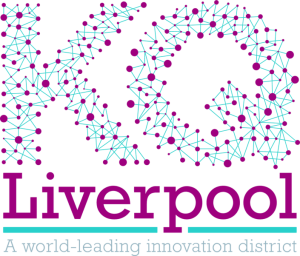Smart Cities – What Liverpool Can Learn from the Wider World?
Smart cities were once a concept that could only be imagined as futuristic utopias, complete with huge skyscrapers, flying cars and star-wars like technology, but in actual fact, they are already starting to emerge in all corners of the globe. By 2050, 70% of the world’s population will live in cities. Such rapid urbanisation will bring with it a whole host of social and economic challenges, putting a strain on energy, infrastructure and healthcare resources.
Here we will explore some examples from around the world, looking at what Liverpool can learn as we take our first steps in joining the growing list of smart cities:
What is a Smart City?
The purpose of a Smart City is to drive economic growth, incorporating information and communication technologies (ICT) to enhance the quality and performance of urban services such as energy, transportation and utilities in order to reduce resource consumption, wastage and overall costs.
To improve city life, smart city initiatives collaborate with developers and big data specialists, along with innovators and strategic thinkers. Private sector companies engage with civil planning authorities and universities, looking to better public transport, smart traffic, light systems, smart apps, streetlights and parking, amongst others.
Singapore
Singapore is at the forefront of the smart cities’ global movement and aims to be the world’s first ‘smart nation’ in the near future. With over £1bn worth of investment, the island nation has implemented a range of action-based initiatives and trials across various sectors. They have taken a particular focus in areas with high impact on citizens and residents, specifically health, housing and transport.
Singapore are one of the driving forces behind self-driving cars, trains and taxi’s, with their ‘Smart Nation’ platform collating data from sensors across the country to create a 3-dimensional ‘Virtual Singapore’. This model enables city planners to analyse pedestrian and traffic flows, whilst also allowing them to test emergency evacuation simulations for training purposes. As of 2020, all cars in Singapore now come with compulsory built in satellite-navigation systems, adding to the vast pool of data regarding traffic volume and speed, along with traffic congestion. Singapore are leading the way with unparalleled levels of monitoring and data collation, seeing themselves well on their way to becoming a smart nation in years to come.
Amsterdam
Amsterdam is widely regarded as Europe’s leading smart city. Amsterdam Smart City (ASC) have been tackling a wide range of issues, with 80 pilot projects and an optimistic pledge to be completely carbon neutral by 2030.
Holland is the most densely populated country in Europe with nearly five people per square kilometre, topped by its capital which houses 4439 people per square kilometre (and that’s without adding the 14 million tourists that visit Amsterdam yearly into the mix). With Amsterdam’s network of narrow and crowded streets posing more and more of a problem, many initiatives are collating pedestrian traffic data to steer people away from these congested areas at peak times. Apps like ‘Wyzer’ direct tourists away from the main areas, helping them get from A to B through the lesser known streets, pinpointing hidden gems, landmarks and beauty spots along the way. This has been very beneficial not only for the flow of pedestrians through the city, but also for local businesses who are now also getting a slice of the cake, with tourists not only exploring Amsterdam’s more renowned attractions.
Holland is a liberal country, and it is no surprise that they also have a relaxed policy regarding their data, making it ‘open source’ and readily available for all citizens to access and add to. Giving the data back to the people has revolutionised the city and paved the way for apps like ‘MijnBuur’ (My neighbour), which uses an ‘owner association law’ for tenants in apartment buildings to look after it collectively. All neighbours use the app, enabling them to organise maintenance work from a set budget, organising events and handling disputes and complaints in a simple and efficient way. With regards to transport, 1000 charging points have been installed across the city, as a starting point to help with the new wave of electric vehicles. Their ‘Flexpower’ system means that where there are surpluses of power (on sunny days for example) it reduces the charging time for vehicles already on the road. They are also finalising talks with car manufacturers to allow for second-hand EV, making them more affordable and readily available to meet their 2030 carbon targets.
Dubai
Dubai are looking to become a smart city with an emphasis on making it ‘the happiest city in the world. Dubai Smart Office (DSO) have engaged in 130 initiatives with government and private sector entities, dividing their goals into specific areas, including Artificial Intelligence (AI), data, start-up support, blockchains and the happiness agenda to name a few.
Dubai’s AI lab’s, principles & ethics looks at Dubai excelling in the development and use of AI, in ways that both boost innovation and deliver human benefit and happiness. They aim to increase the availability of data in the city, enhancing government compliance, and nurturing a strong data community. Their blockchain strategy will help to achieve their vision of ushering in more economic opportunity for all sectors in the city, cementing Dubai’s reputation as a global technology leader, in line with Smart Dubai’s mandate to become a global leader in the smart economy, fuelling entrepreneurship and global competitiveness. When looking at buying property for example, all of the necessary documentation will be digitised, simplifying the process and grouping data for improved efficiency.
The happiness agenda focuses on public services such as transport systems and addressing the fundamental needs of residents and visitors to enhance everybody’s short and long-term happiness and well-being, creating a global benchmark for other cities to follow.
Dubai also have a ‘paperless’ agenda in place – as of 2021, the city will go completely paper-free, which will see 100% of internal customer transactions digitised, meaning that the government will no longer issue or ask for paper documents across all of its operations. This will eliminate more than one billion pieces of paper every year!
Milton Keynes
Milton Keynes, closer to home than the previous examples, are making a lot of noise in the global smart city scene. Being a mid-sized city, MK Smart have been able to use this to their advantage, implementing projects with a city-wide impact at a reasonable cost. With ambitions to grow the population to 500,000 by 2050 – from 280,000 today, MK Smart have rolled out a range of initiatives, looking at data, transport, energy, water, enterprise, citizens and education.
MK have used the power of the Internet of Things to improve the efficiency of services in day to day life. The MotionMap app shows the movements of vehicles across the city in real time, which also notifies drivers of available parking spaces around the city. They have implemented a huge data collating service known as the MK Data Hub, an award winning technical, data infrastructure which includes local and national data, streaming from both key infrastructure networks (energy, transport, water) and other relevant sensor networks (weather and pollution data).
Whilst other smart cities have focused their attention on mainly transport, data and energy networks, Milton Keynes have acknowledged the importance of implementing education at all levels to their smart city plan. MK Smart have their hopes set on building a state-of-the-art technology university, and they have also created the MOOC (Massive Open Online Course). This course offers learners an introduction to smart cities, providing an insight into the role that smart technologies and data can play in addressing city challenges and how citizens can get involved in their creation.
Songdo
Finally, Songdo in South Korea is a purpose-built smart city of its own kind. Built on land reclaimed from the yellow sea, it was originally made to fight trade wars in the Asian financial crisis, with the hope of opening up South Korea to western investment. However, since 2000, and $35billion later, it has seemed to grow in popularity among locals and abroad.
Songdo have a pneumatic tube waste disposal system, where waste is sucked down through tubes into an underground waste disposal facility, where waste is recycled or burned.
The city is filled with sensors tracking traffic, with over 20 million square foot of Leadership in Energy and Environmental Design (LEED)-certified space, making it the highest concentration of LEED space in the world. Songdo boasts great transport links, with their subway system being connected to the Seoul and Incheon mainline, through their OLEV (online electric vehicle technology) system. Electric buses can also charge themselves as they drive, using magnetic fields that are created by cables under the road surface.
Looking to the future
After looking at examples from around the globe, it is clear to see that cities are starting to understand the value of data and how it can have a huge impact on the quality of life for urban citizens. Using data to make changes in infrastructure, transport and energy consumption will help limit the burden of mass urbanisation in coming years. Liverpool can learn a lot from these cities, and it will be interesting to see the ways in which we will try to establish ourselves as one of the many fast-growing smart cities of the future.









